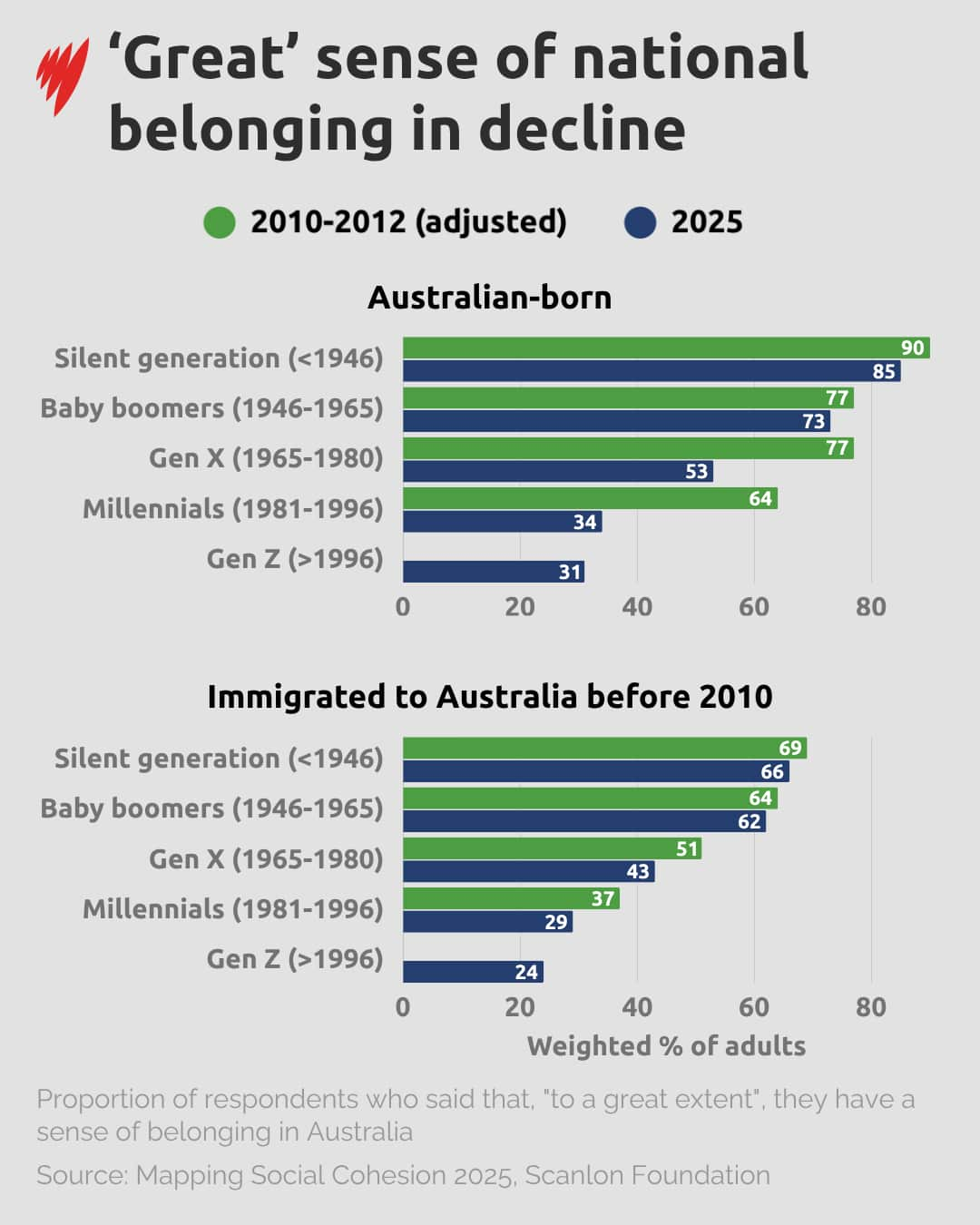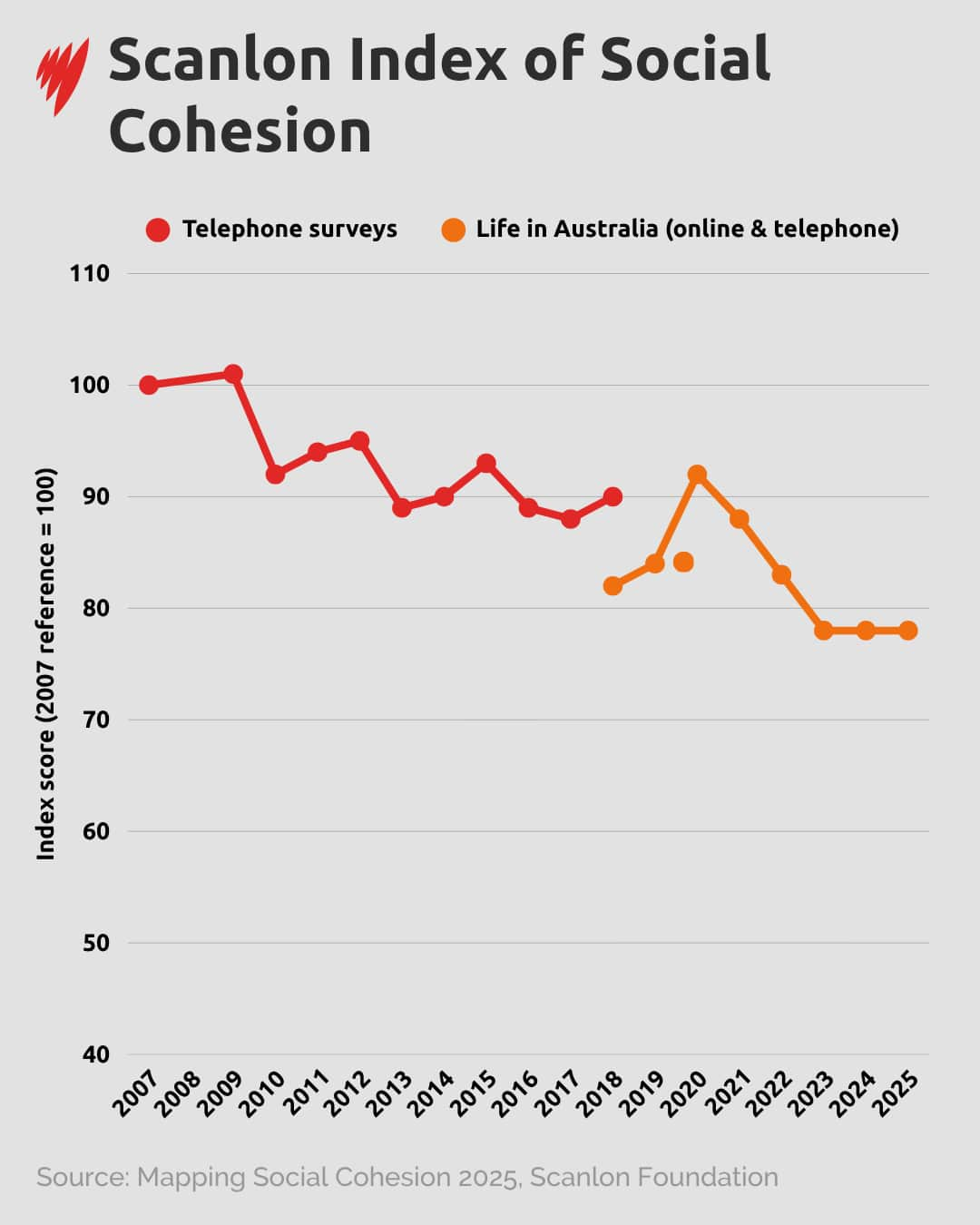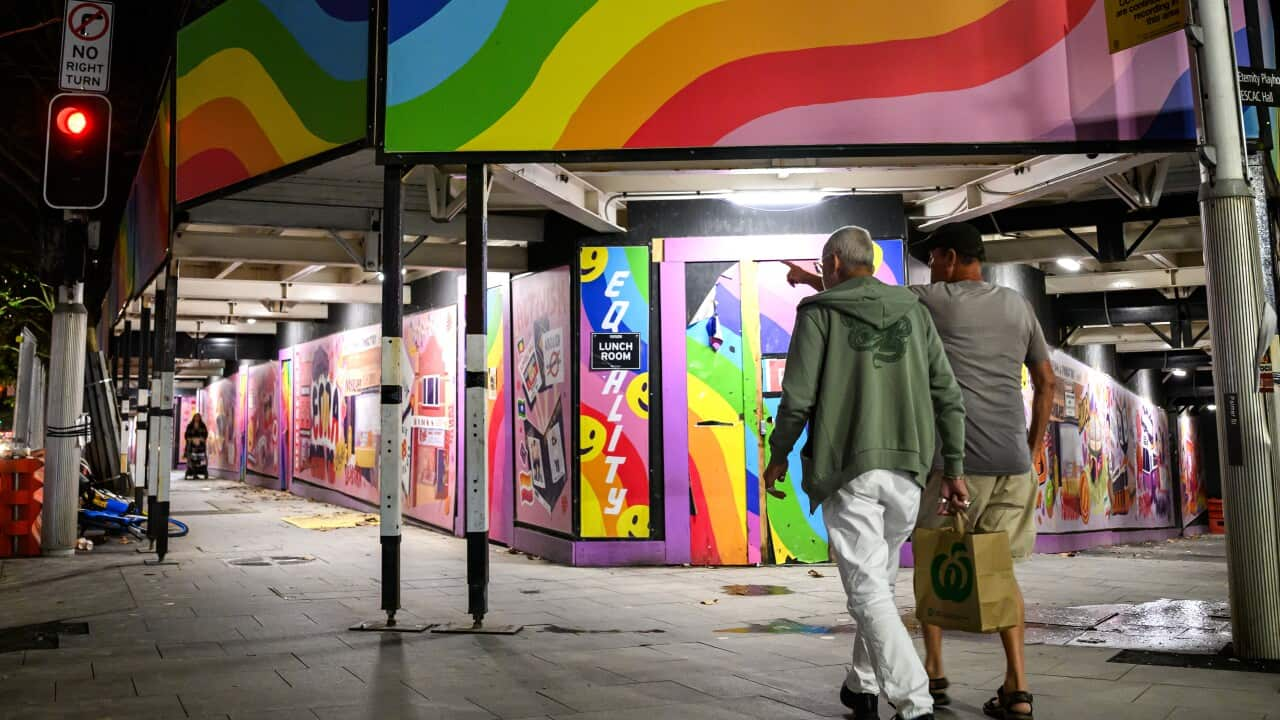Our sense of national belonging has slumped to its lowest levels since 2007, driven by a widening generation gap and precipitous drops among younger Australians, according to new research.
The proportion of millennials who feel a sense of national belonging to "a great extent" has almost halved from 2010-2012 levels, dropping from 64 per cent to 34 per cent, the Scanlon Foundation Research Institute's Mapping Social Cohesion 2025 report found.
Gen X also reported a significant decline over the same period, plummeting from 77 per cent to 53 per cent.
Meanwhile, the same metric for baby boomers only dropped from 77 per cent to 73 per cent, while among the silent generation, it decreased from 90 to 85 per cent.
Gen Z, for whom 2010-2012 data is unavailable, recorded the lowest "great" sense of national belonging in 2025, at 31 per cent.

Belonging and social isolation
The report's lead author James O'Donnell said there were several factors behind the decline in national belonging, some more concerning than others.
"There's that element where [national belonging] gets mixed in with a sense of nationalism and patriotism and those cultural tastes and preferences that can change over time in ways that are interesting, but not always necessarily a cause for concern," O'Donnell told SBS News.
"Where we pick up on a cause of concern in the report is where it's quite strongly related to a sense of loneliness, social isolation, unhappiness," said O'Donnell, a researcher based at the Australian National University's School of Demography.
Around 60 per cent of millennial and gen Z respondents said they feel "socially isolated from others at least some of the time", O'Donnell said.
"Those kind of day-to-day daily connections in people's lives then shape their broader sense of belonging in Australia, and that explains a big part of the difference between the older and the younger generations," he said.
Economic disadvantage and a fair go
O'Donnell said financial wellbeing was "one of the strongest predictors of a sense of belonging and connection".
"For example, among people who say that they're financially very comfortable or prosperous, about 58 per cent of people say that they have a great sense of belonging in Australia.
"For people who say they're struggling to pay bills or poor, that's 33 per cent — so it's almost half as likely."
The report found that financial pressures were particularly acute for renters, single-parent families and young-to-middle-aged adults.
O'Donnell said economic factors were "certainly tied in" to the widening generation gap in national belonging.
"I think we can certainly see that they're related to one another and also their broader sense of economic justice in Australia.
"So, how much they think that everyone gets a fair go in this country — that's sort of been moving in the same direction for young people as the sense of belonging."
Members of younger generations who believe that income inequality is too large were 40 per cent less likely than baby boomers and older generations to have a great sense of belonging in Australia, the report found.
What else did the report find?
Belonging is only one domain the report uses to estimate a national index of social cohesion, which has dropped from 100 in 2007 to 78 in 2025.
The researchers have recorded the same social cohesion score since 2023, something they said may come as a surprise given widespread reports of increasing social fracture.
"The stability of social cohesion may seem surprising in the face of these tumultuous times but perhaps reflects the continuity of daily life and the resilience of social bonds and connections that shape our everyday lives," they wrote.

Another domain used to calculate social cohesion is 'acceptance and rejection', which includes experiences of discrimination and attitudes to immigration and diversity.
The report's findings suggest 84 per cent of Australians agree that multiculturalism has been good for the nation, something the authors said was a significant contributor to the "stability of social cohesion".
"In a world deeply polarised over attitudes to migration, recognition of the contribution of immigrants to Australian society and general support for diversity and multiculturalism has been a source of strength in recent years, though now strained by current events and the persistence of discrimination and racism," they wrote.
Another domain covers social participation, with the report finding that 54 per cent of Australians were involved in community, social and civic groups, a figure that was the same in 2021.
More than 80 per cent of respondents also agreed that locals in their area were "willing to help neighbours" and that neighbours "from different national or ethnic backgrounds get on well together".
These connections "perhaps provide important foundations for Australia's overall social cohesion that are not easily disturbed by external social, economic and political upheaval", the authors wrote.
— The Scanlon Foundation Research Institute is a media partner of SBS.
For the latest from SBS News, download our app and subscribe to our newsletter.

